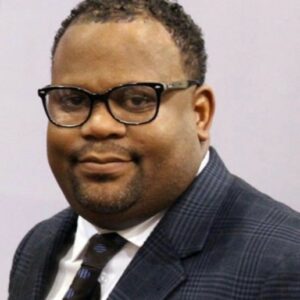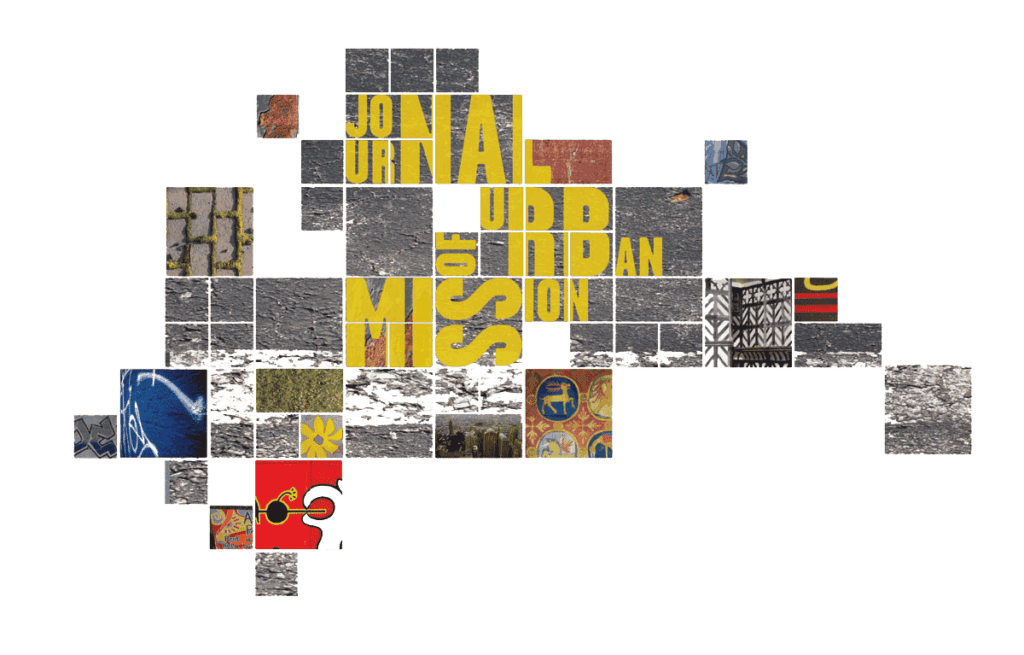Focus Group Report Given at March 2, 2022 Colloquium
Part of Educating Urban Ministers in Philadelphia After 2020 project
The focus group on “How Life Changed for Pastors After 2020” was hosted by Dr. Chad T. Hinson. The participants, Dr. Chandra Williams, senior pastor of the United Baptist Church, D. Victor Vincent and Pastor Samuel Peterson of the Sharon Baptist Church, and Pastor Stephen Mack, senior pastor of the Little Rock Baptist Church, were assembled to share their diverse experiences and perspectives which added to the rich discussion.
Dr. Chandra Williams, a native of Philadelphia, has extensive community ties and succeeded her father as she became the first female pastor of the United Baptist Church in North Philadelphia and has served there for ten years. The ministry focuses on discipling and empowering the most vulnerable who are living in the urban context. She shared the impact that gentrification has had in her area and on her demographic. She has received her bachelor of science from Virginia Union, Masters of Divinity from Virginia Union Seminary and Doctor of Ministry degree from Virginia Union Seminary.
Dr. Victor Vincent has over twelve years of seminary and ministry experience. He started the Transitional Life Christian Center church before the pandemic, intentionally targeting and primarily focused on inciting growth by discipling the millennial demographic who left the church in search of authentic connections among their peers within the faith community.
Pastor Samuel Peterson, a staff pastor for eighteen years at the Sharon Baptist Church in West Philadelphia, shared his commitment to and focus on the effects of the pandemic and the resulting shutdown on the members and the surrounding community, including death, loss, financial stress, disconnectedness, and loneliness. He also played an integral role in determining when and how to reopen safely, establishing opportunities for Covid-19 testing and vaccinations and addressing food insecurity at the church during the crisis. He is currently participating in the Diploma Program at Missio Seminary.
The last, and the youngest in the group, is the pastor of Little Rock Baptist Church, Stephen Mack. He is a son of Enon Baptist Church in Philadelphia and has been pastoring the historic Little Rock Baptist Church for seven years. The focus of the church has been on strengthening relationships in the community, particularly strengthening the connection between congregants and civic leaders. He would like to develop discussions and think tanks to work together for the betterment of the city of Camden.
The discussion opened by asking the panelists to describe their ministries and how they were thriving prior to the pandemic. Dr.Williams discussed how her community was literally in the process of gentrification and how she worked tirelessly to advocate with community leaders for positive solutions to address the economic hardships placed on the residents and members of the church as the neighborhood gentrified. She shifted her mindset from just gathering and internal ministry to becoming involved, supporting, and impacting the community through meeting with city officials, other pastors, landlords, and others to access resources to help families during what has proven to be difficult as families have been pressured to find more affordable areas. She adopted schools in the neighborhood and the congregation was making progress in reaching those in the community.
Dr. Vincent expressed his excitement before the pandemic over the growth of the ministry. He stated how God was moving by adding 70 members to the congregation in the year before the pandemic. The ministry was a church plant that focused on millennials who were either unchurched or who had walked away from the church and were experiencing exponential growth. He recalled how the growth and the success enabled them to rent a location where they were able to do ministry seven days a week.
Pastor Peterson shared that the church had three worship services before the pandemic; 8:00 a.m. and 10:00 a.m. at its main location on Conshohocken Avenue, and at 12:00 p.m. at its urban satellite location at 59th and Catherine Streets. He expressed how dynamic and well attended the services were prior to the start of the Covid-19 pandemic. Pastor Peterson also stated how the church recommitted itself to the seniors and its outreach efforts. They engaged in senior ministry at the church providing food, fellowship, and a good game of cards.
Pastor Mack stated how the church was committed to a traditional model. Before the start of the Covid-19 pandemic, he was attempting to make some technological changes that would allow the church to stream online and reach more people on a Sunday morning. He shared the disappointment he and the church experienced when the Trustee Board voted no to a $5,000 proposal that would have provided a necessary opportunity to stream on YouTube and Facebook Live. He began to feel that the loyalty and commitment many of the leaders had was primarily to the building and the legacy of the church.
The panelists proceeded to share other ways the pandemic impacted their ministry and personal lives. Dr. Williams shared her dismay at how particularly stressful the quarantine was on families who desperately struggled with their personal lives, work and becoming their children’s’ support all day during the two years of remote learning most students experienced. Particularly stressful was addressing the quarantine’s impact on children’s behavior, social and emotional well-being, academic growth, social engagement, and mental health issues. Parents struggled economically, which ultimately impaired their ability to provide the level of support and nurturing their children so desperately needed. She also discussed the lack of spiritual formation of the members of the church, especially as it pertained to the problems surfacing in marriages and overall family relationships. The pandemic put marriages under significant pressure as couples struggled to avoid domestic violence issues, navigate financial hardship, privacy issues, and stress over health, medical concerns and loss. The pandemic magnified the problems they faced because of the increased time spent together. She articulated she felt like she was thrust into putting out what seemed to be family fires or crises in the lives of her membership on a daily basis. This pace led to burnout for her.
Pastor Vincent said right before Covid-19 he signed a three-year lease to accommodate the growth of the ministry. He said that during the first month of the pandemic, the budget dropped by 80 percent. Though they had the equipment to provide virtual service, loss of the building and the damage to his credit was devastating. The ministry lost momentum and he was forced to shut down the ministry. Though the congregation was younger, the lack of history and Covid-19 caused the ministry to dwindle.
Pastor Peterson shared that it was a total paradigm shift for the ministry for which he serves. He realized for years that they capitalized on their worship space. The dynamic worship and the facility played a huge role in ministry participation. The shutdown of the in-person services because of Covid-19 hampered the ministry at first. The church and leadership realized how they depended on the building. However, it caused the ministry to seek other methods to survive. They quickly developed a virtual presence. Moreover, they begin to understand the plight of smaller churches and begin lending a helping hand to smaller ministries.
Pastor Mack shared how during the pandemic the same trustees that would not allow any approval for expansion or technological upgrades were the ones who approved double that amount and were willing to do whatever it took to keep the ministry afloat. He believes it was during the pandemic that he became the pastor of the church. The pandemic shifted the church’s understanding of member. Members had been only those who walk down the aisle and fulfilled the requirement to be members of the church. However, he found himself becoming the community pastor. Though they never walked down the aisle, he became the pastor of people who constantly viewed and supported the ministry. This caused the church to grapple with its understanding of what they call membership.
We ended with asking panelist what they would say to Missio and all seminaries in regards to theological education now. They all affirmed the direction of Missio–their commitment to follow Jesus into the world and their moving to the city. Before they offered the recommendations they affirmed Missio’s commitment to the Bible and how the seminary integrates it into our present-day.
They offered four recommendations to help the seminary. First, they mentioned how important it is to prepare leaders for intercultural relationships. The pandemic has impacted the effects of gentrification, and North Philadelphia places high priority on the relationship between white and black clergy. The community needs to take part in courageous conversations that embrace both cultures for the common good of Christ. The assertion is that seminaries, and particularly Missio, should lead the charge in the conversation and the training. They all agreed that the life of the church in terms of technology has forever changed. That means that technology and hybrid service can become the norm. They shared the need for some form of training that enhances the technological capacity of the pastor and their leaders, for example, Zoom trainings and how to preach, teach, engage and disciple members virtually.
The last recommendation was training to help pastors learn to sustain the ministry in ways other than tithes and offering; for example, how to apply for grants, loans, and loan forgiveness. This training would have been beneficial in the midst of the Covid-19 pandemic considering the loans that were offered to the church. The group is optimistic about the ministry that lies ahead, but they agreed they would be forever impacted by the pandemic.


